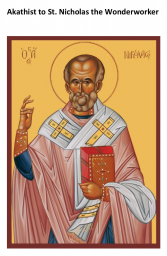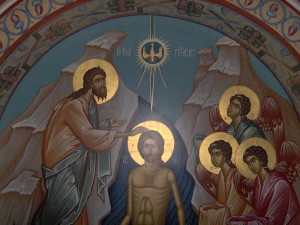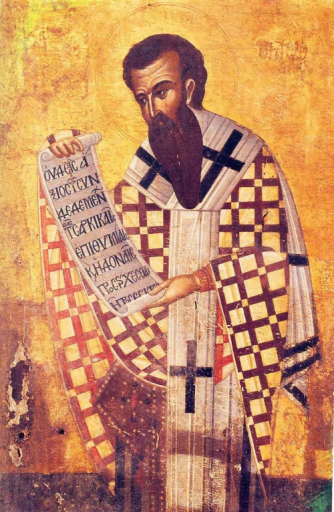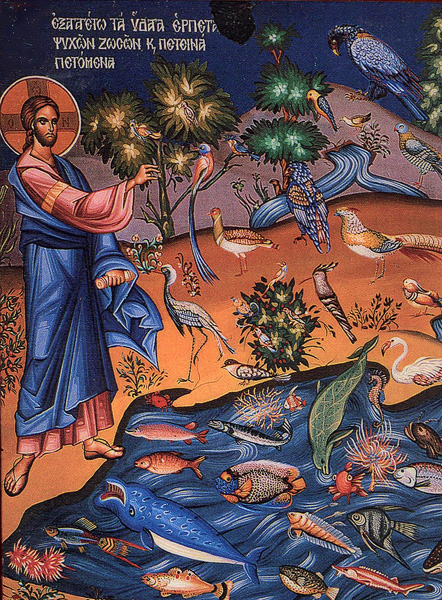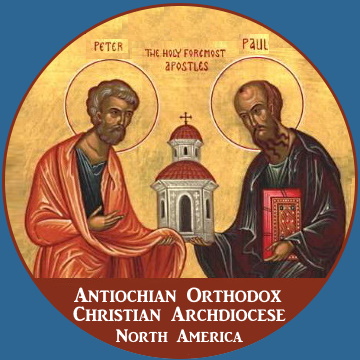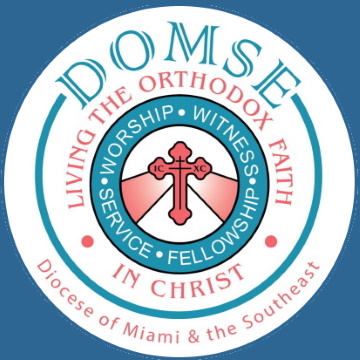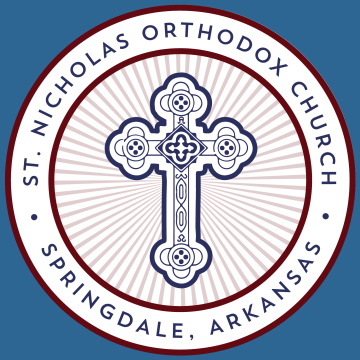The Akathist is a hymn / prayer of devotion, thanksgiving and petition – a profound devotional poem or chant – which sings the praises of a Saint, Holy Event, or one of the Persons of the Holy Trinity. It has thirteen parts, each with a Kontakion ( a hymn in verse) and an Ekos (an earnest request) ending in a repeated refrain such as “Rejoice… “
As the word Akathist means “standing” the hymn is prayed standing. Akathists are chanted in Orthodox and in other Eastern Churches, though chanting is not necessary if prayed individually or in a small group.
There is a beautiful akathist of praise and supplication sung to our Saint Nicholas the Wonderworker. We sometimes sing this hymn to our patron when we are looking for direction in our local parish. ( See below for video! )
The akathist par excellence is that written in the 6th century to the Holy Mother and Ever-Virgin Mary (Theotokos). It is the first and model (prototype) for all other hymns of this kind. In its use as part of the Salutations to the Theotokos service (used in the Byzantine tradition during Great Lent), it is chanted in all Orthodox Churches throughout the world during the five Fridays in the Great Lent, and constitutes a very concrete spiritual preparation for the Holy Week and Easter Services.
